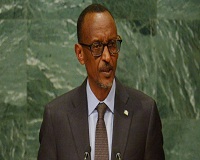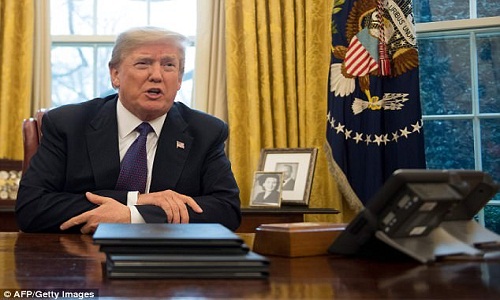"This seems to be a classic case of the big fish trying to swallow the smaller fish. The Rwandian move of imposing tariffs on the US export of second-hand clothes seems to have bruised many egos in the Donald Trump administration, which promptly suspended duty-free access to the US markets for Rwandan clothing. This squabble between the world’s economic giant and one of Africa’s fastest-growing economies reflects the difficulties that even a low-wage country like Rwanda can face developing an industry in an intensely competitive global market."
 This seems to be a classic case of the big fish trying to swallow the smaller fish. The Rwandian move of imposing tariffs on the US export of second-hand clothes seems to have bruised many egos in the Donald Trump administration, which promptly suspended duty-free access to the US markets for Rwandan clothing. This squabble between the world’s economic giant and one of Africa’s fastest-growing economies reflects the difficulties that even a low-wage country like Rwanda can face developing an industry in an intensely competitive global market.
This seems to be a classic case of the big fish trying to swallow the smaller fish. The Rwandian move of imposing tariffs on the US export of second-hand clothes seems to have bruised many egos in the Donald Trump administration, which promptly suspended duty-free access to the US markets for Rwandan clothing. This squabble between the world’s economic giant and one of Africa’s fastest-growing economies reflects the difficulties that even a low-wage country like Rwanda can face developing an industry in an intensely competitive global market.
Blurred vision
Until recently, supporting African economic growth was the cornerstone of US-Africa policy. But, the suspension of access for Rwandan apparel reinforces the growing belief that the Trump administration’s trade vision is highly blurred. And there is no question that US businesses will suffer as a result. Africa represents the last frontier for America’s export-driven economy, with consumer and business spending predicted to reach $6.7 trillion by 2030. But the US misses a larger opportunity by engaging in petty trade squabbles and generally neglecting the continent.
of access for Rwandan apparel reinforces the growing belief that the Trump administration’s trade vision is highly blurred. And there is no question that US businesses will suffer as a result. Africa represents the last frontier for America’s export-driven economy, with consumer and business spending predicted to reach $6.7 trillion by 2030. But the US misses a larger opportunity by engaging in petty trade squabbles and generally neglecting the continent.
Maintaining dignity
Rwanda’s motivations are as much about dignity as they are about economics. Just as China recently banned imports of “foreign garbage” that it used to buy and recycle, Rwanda is taking a stand against the perceived indignity of buying clothes that others have worn and discarded. The White House fails to grasp this, as well as the bigger picture for the United States.
Rwanda has made huge economic progress in the past 25 years. But the ubiquity of recycled apparel – known as chagua – has stifled the growth of its nascent textile industry and has dented national pride.
A boost to local industry
The country recently launched a national ‘Made in Rwanda’ campaign to mobilise support for local entrepreneurs, artists and craftsmen as well as encourage companies to improve production quality and standards. TV and radio advertisements are also urging Rwandans to shop locally. The country has initiated a series of reforms to attract foreign investors, offering a friendly business environment and significant tax incentives.
Meanwhile, other economies are making aggressive commercial investments in Africa. China has been Africa’s leading trade partner for the last nine years; trade scuffles like this one with Rwanda can only further drive African states into China’s open arms. Nor is it just China — the European Union has been actively traveling the region, signing two-way trade agreements that will disadvantage American companies far more than any tariffs on secondhand clothing.












